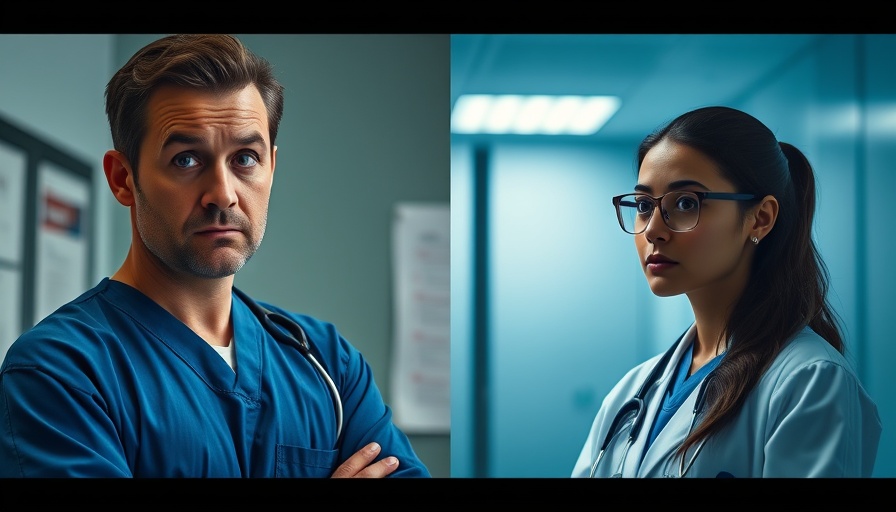
A Disturbing Dive into Medical Dramas
In the realm of medical dramas, some shows take storytelling to a level that can leave both audiences and professionals shaking their heads. With programs like Netflix's "The Pulse," the line between exaggerated drama and medical accuracy starts to blur disturbingly. Dr. Maya Collins provides insight as she reviews the latest seasons of popular medical shows, offering much-needed factual clarity amidst the chaos presented on screen.
In "The Worst Medical Drama? | Doctor Reacts To 'Pulse,'" the discussion dives into the accuracy of medical portrayals, exploring key insights that sparked deeper analysis on our end.
What Makes a Medical Drama Work?
Great medical dramas strike a balance between medical accuracy and engaging storytelling. This balance is critical; shows like “Grey's Anatomy” have become popular precisely because they weave a rich tapestry of human emotions and realism into their storylines. However, "The Pulse" seemingly abandons foundational medical principles in favor of heightened drama, as Dr. Collins points out. The decisions made in the show often leap from the plausible to the downright ridiculous, such as a chief resident being inexplicably transferred mid-season, a scenario that's almost unheard of in real medical training.
Medical Mistakes and Media Messaging
One noteworthy takeaway from Dr. Collins’s analysis is the impact that unfounded medical scenarios can have on the public's understanding of healthcare. For instance, the portrayal of chest compressions done incorrectly in a crisis can lead individuals to underestimate the seriousness of CPR techniques in real life. Viewers might leave their couches more confused than educated, potentially leading to a lack of preparedness in real situations. This inconsistency can inadvertently shape health literacy among viewers who might not seek further information outside of the screen.
Emotion Over Accuracy: A Dangerous Trend
As Dr. Collins highlights, many scenes in "The Pulse" prioritize emotional turmoil over realistic medical practices. The show hinges on dramatizing interactions between characters while sacrificing factual representation of medical protocols. A particular scene where a doctor is giving critical updates in front of patients exemplifies this absurdity. Such setups, while engaging for audiences, could lead to misconceptions regarding patient care and privacy standards seen in real healthcare environments. In the pursuit of excellent television drama, we’re reminded that real-life situations in medicine require more decorum.
Counterarguments: A Different Perspective
While many medical professionals and critics echo Dr. Collins’s sentiments, others contend that such shows serve a different purpose. They argue that by taking liberties with reality, writers can explore complex emotional narratives that resonate with viewers. This perspective suggests that while accuracy is vital, the emotional connection to the characters and plots might outweigh the faults in medical honesty. Notably, the argument reflects a cultural narrative that consistently prioritizes stories over factual representation.
Final Thoughts
As fun or dramatic as medical shows can be, they should not be mistaken for accurate portrayals of healthcare. Dr. Maya Collins urges audiences to approach shows like "The Pulse" with a critical eye, emphasizing the importance of discerning entertainment from healthcare education. Whether you’re an aspiring medical professional or simply a fan of the genre, the blend of science and emotion can be achieved without sacrificing realism. So next time you watch a medical drama, remember to question what you're presented with and seek clarity where the lines begin to blur.
 Add Row
Add Row  Add
Add 




Write A Comment